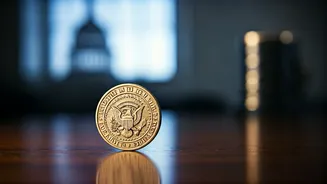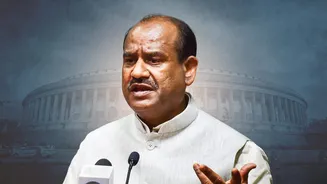The Pardoned Defendant
The pardon issued by Donald Trump concerned an individual who faced charges related to the events of January 6th. However, the pardon specifically addressed
a separate offense: a gun-related charge. The former president chose to exercise his constitutional power, a move that immediately brought the spotlight on the defendant, placing their case at the center of political discussions. Legal experts quickly began scrutinizing the implications, particularly how the pardon related to the separate gun offense and any potential links to the broader January 6th investigations. The defendant, now released from prison, had their legal status altered significantly by Trump's decision.
Legal and Ethical Concerns
Trump's decision to pardon the individual sparked legal and ethical concerns among various groups. Some legal scholars and political commentators raised questions about the timing of the pardon and its potential signaling effect. Critics pointed out the possibility that such actions might be viewed as attempts to obstruct justice or undermine the ongoing investigations related to the January 6th events. Ethical questions centered on whether the pardon was justified, given the defendant's involvement in a serious offense, and if the decision was influenced by political considerations. The exercise of a presidential pardon always involves complex legal interpretations, further complicating the issue in this instance, given the politically charged environment.
Political Ramifications Emerge
The pardon was immediately met with a strong response from various political figures and factions. Supporters of Trump often lauded the decision, framing it as an act of justice and asserting the president's right to use his pardon power. On the other hand, opponents of Trump strongly condemned the move, viewing it as another instance of him interfering in legal processes. The controversy exacerbated existing political divisions, with different sides using the event to reinforce their narratives and criticize their opponents. The reactions reflected the deep political polarization that has characterized American politics for a long time, particularly since the January 6th events themselves. The incident has intensified the already heated debates regarding accountability and the future of the American political landscape.
Pardon's Impact and Aftermath
The effects of the pardon are expected to extend far beyond the individual directly affected. It has already contributed to a heightened level of political tension, with renewed calls for investigations and assessments of the January 6th incident. There has been speculation about the potential impact on public confidence in the judicial system and in the impartiality of government institutions. The pardon decision has the potential to influence the ongoing legal proceedings and future decisions related to the January 6th case. It is also expected to become a subject of ongoing media coverage, legal analyses, and further political debates, ensuring its prominence in public discourse for some time to come, as various interested parties continue to debate the legal and ethical implications.





















